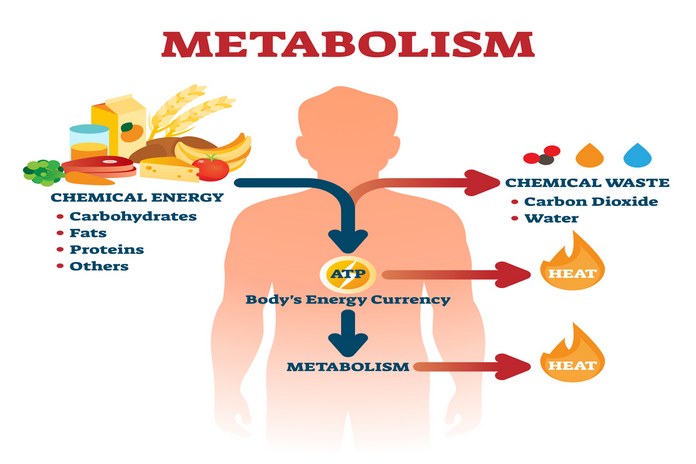Metabolism, you may already know this word, is the name given to several processes that the body uses to create energy from the food you eat. The body breaks down food into molecules that it can use for energy. These molecules are then transported to cells throughout the body, where they are used to create adenosine triphosphate (ATP). ATP is the primary and most valuable source of energy for the body’s cells. (1)
The energy is used to power everything your body does, from breathing to moving. Metabolism also helps the body grow and repair tissues. There are many things that can affect your metabolism, including weight, age, activity level, muscle mass, and thyroid function. The amount of food you eat also affects metabolism. When you eat more food than your body needs, it stores the excess calories as fat. When you eat fewer calories than your body needs, your body uses stored fat for energy.

Your metabolism can be affected by things like age, activity level, and genetics. However, several ways can help boost your metabolism, like eating healthy foods and exercising regularly. Exercise increases the number of calories you burn and helps you lose weight or maintain a healthy weight.
Many people believe that they can speed up their metabolism by eating certain foods or doing certain exercises. While these things may help, the only way to truly speed up your metabolism is to lose weight. When you lose weight, your body’s lean muscle mass decreases. This means that your body has to work harder to burn the same number of calories, and your basal metabolic rate slows down. You can reverse this process by gaining back some of the muscle mass you lost. You can do this by strength training and eating a healthy diet.

